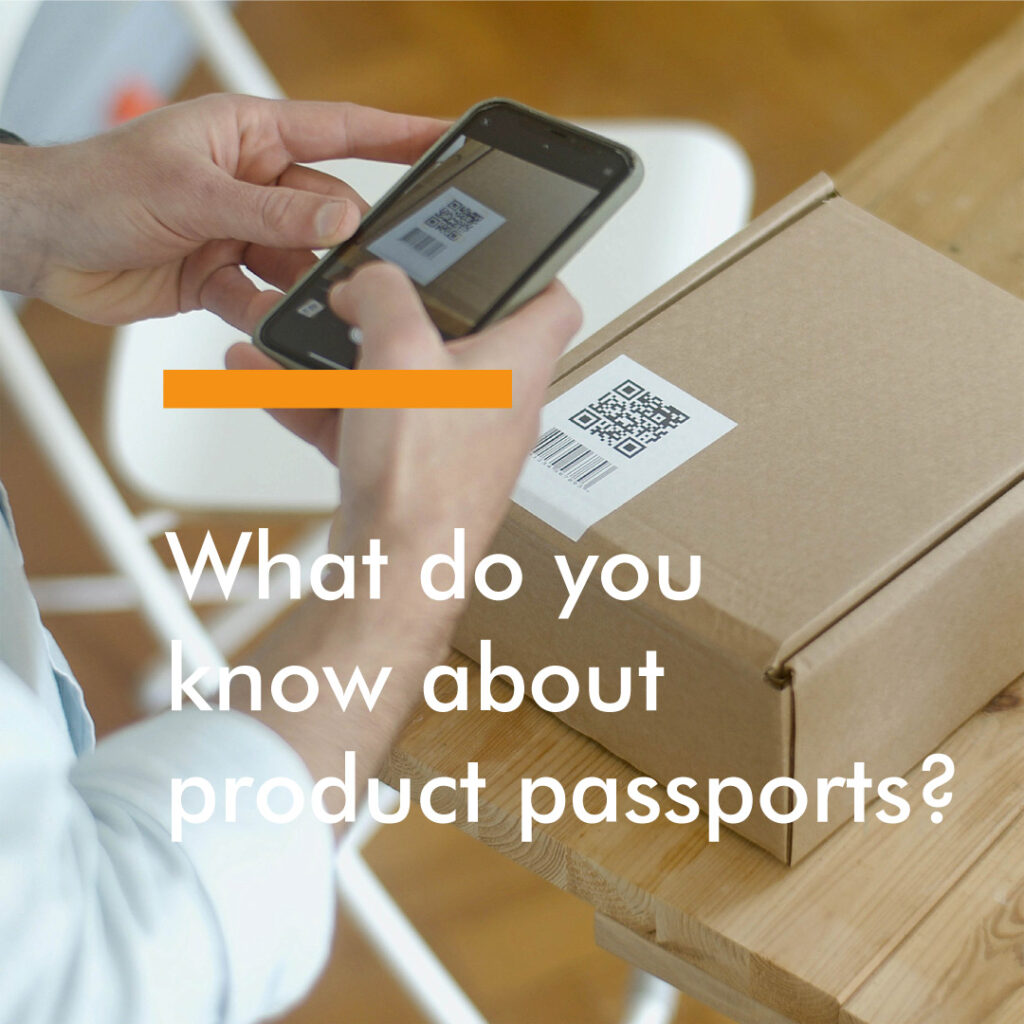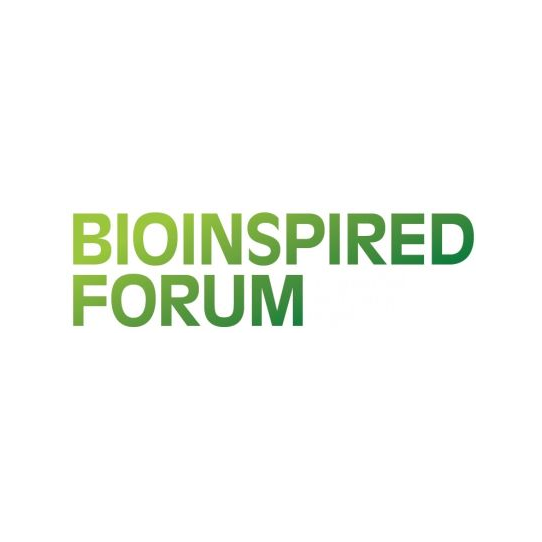ProPare – A Global Standard for Digital Product Passports
Starting from 2025, the EU is expected to implement new legislation requiring all products to have a digital product passport, which will provide reliable sustainability data – right down to the smallest component. The ProPare project developed a prototype showing how a global, standardized infrastructure for Digital Product Passports could work in practice. The solution is based on a set of open, competition-neutral, and global standards, and the ambition in the long run is that it will be useable for linking all types of product information and sustainability data to products, regardless of industry, company, or product category. The ProPare project was carried out in a broad collaboration between Axfoundation, the Swedish Trade Federation, Ecolabelling Sweden AB, GS1 Sweden, which is part of the global standards organization GS1, as well as trading companies, brand owners, and technology developers.

Digital Product Passports must provide reliable sustainability data on products in real-time, regardless of industry or product category. To meet this objective, the underlying solution must be based on open, global and competition-neutral standards.
The Issue
Consumers and purchasers need to have access to accurate product information in real time. This is a prerequisite if their choices are to contribute to meeting EU’s climate goals and to a circular transition. But it is today difficult for consumers and purchasers to make sustainable choices. Too little product information is available in connection with purchases, and the information available is not always reliable. The European Commission has presented a proposal for so-called product passports for all products that are made available on the European market. The purpose of the product passport is to increase traceability and support a circular economy by manufacturers being required to share various sustainability data for their products.
Uniform standardized infrastructure rather than fragmented solutions
To accelerate the transition to sustainable development and avoid fragmented solutions, it is important that Digital Product Passports are based on a set of open, global, and competition-neutral standards. However, the development towards such an infrastructure, risks being hampered by private, rigid, and non-compatible solutions, resulting in suboptimization and the risk of transparency and accessibility being lost.
Our only competitor in ProPare is unsustainable production. We collaborated widely across industries and sectors to show the way to a practical solution for digital product passports that is generic, complies with the legislation, and works in the long term.
– Joakim Stattin, Project Manager for Propare, Axfoundation
Our Solution
The ProPare project developed a prototype for how a global, standardized infrastructure for Digital Product Passports could work in practice. The basis for this is a set of open and competition-neutral standards. With a common language used to identify every single unique product on the market, and a resolver pointing to the right data sources, all actors – suppliers and retailers as well as public authorities and consumers – can access relevant updated data in real-time, from multiple, decentralized sources, regardless of industry, company or product category.
If, by 2025, we’re to succeed in exchanging product information between each other, regardless of industry, supplier or product, this will require a basic global and competition-neutral product passport infrastructure. We want to create this using existing technology in a new way.
– Staffan Olsson, GS1 Sweden

ProPare aimed to build an open infrastructure for digital product passports where all players can obtain reliable sustainability product data in real-time.
To provide a concrete example of how a digital product passport infrastructure can be created and further developed, the project chose to create a demo app in which third-party certifications (Type 1 Ecolabel, ISO 14024) are linked to product identities and can be displayed to various players in real-time. In a next step, any type of information can be linked to a product and show everything right from basic data on product properties to complex sustainability data on, for example, recyclability, climate impact from production and contents of components.
Our Work
Axfoundation led ProPare and the steering committee’s work throughout the project. Through the practical solution, we want to accelerate and strengthen the prerequisites for digital product passports. Together, we want to show legislators and trade and industry the way towards secure product information and increase the pace of the transition to sustainable production and consumption.
By linking third-party certifications with product identities, with the Nordic Swan Ecolabel as an example, ProPare provides a specific example of how a digital product passport system can work in practice.
– Jonas Oldmark, Ecolabelling Sweden AB (the Nordic Swan Ecolabel and the EU Flower)
Results
Proof of concept
The ProPare solution builds on a resolver, an IT system that allows verified product data to be transferred in real-time from a variety of different sources to a large number of recipients, without being compromised along the way.
The scope of the project was narrow, focusing on three products that were individually linked in real-time with one criterion, the Nordic Swan Ecolabel. This specific criterion was chosen as third-party certifications will play an important role in the future.
The proof of concept showed that it is possible to build a common language for product identification and enable real-time visualization of the data retrieved from multiple sources using a resolver.
Demo app
To visualize the concept and to verify that the infrastructure works, a demo-app was developed that can be downloaded from the Google Play Store and the App Store. The QR codes on the chosen products in the project – such as Ahlsell’s floor cloth, Dagab’s Minstingen diapers, and Mio’s headboard – can be used to test the prototype. The QR code carries the product identity as a link to the resolver, which directs the request to the correct web servers.
Technical Solution Guide
To make the project’s technical solution accessible and create an understanding of the various components of the ProPare prototype, a technical solution guide was developed. The guide explains how the project’s solution with GS1 Sweden Resolver works, along with the demo app and the different data sources. The guide provides access to the technical requirements and steps needed to further explore and utilize the ProPare solution. It is open and free for everyone to use – see it as a basic recipe for further developments to be added.
Knowledge dissemination
In March 2023, the prototype was fully developed and presented in a live webinar with over 700 participants. The webinar was recorded and has been viewed on demand by over 1,000 people.
ProPare.eu
On the ProPare.eu website, we have gathered all the information and lessons learned from the project, as well as recommendations for companies, decision-makers, and techical service providers.
FAQ on Digital Product Passports
What is a Digital Product Passport? What does a “global and competition-neutral standard’ mean? How does a Resolver work? The FAQ provides quick answers to some of the most frequently asked questions about product passports.

Report: Recommendations and Learnings
Partners
The steering committee consisted of Axfoundation, GS1 Sweden, Ecolabelling Sweden AB (the Nordic Swan Ecolabel and the EU Flower), and Swedish Trade Federation. Corporate partners in the project are engaged in groceries trade, fashion, furniture and general retail trade with players such as Axfood/Dagab, Ahlsell, and Mio as well as technology developer Blue Cromos, who was responsible for the app development.
This solution is good for Swedish industry and the Swedish business sector. Through standardised global product passports, we can accelerate the transition to a sustainable development.
– Magnus Nikkarinen, Swedish Trade Federation
Product Passport Terminology
- Digital Product Passport: A set of digital data that is specific to a product and that is designed to provide all relevant information over the life cycle of the product in order to contribute to more sustainable production and consumption.
- Open, global and competition-neutral standard: A standard that anyone may use, and which is designed to function in all parts of the world and where players in all countries can participate in governance of the standard.
- Resolver: An IT system that allows verified product data to be transferred in real time from multiple different sources to a large number of recipients, without being compromised along the way.
- Demo app: A mobile application designed to create an understanding of how the underlying product passport infrastructure works and how it can be scaled up to comprise more information elements and more products.
EU’s Digital Product Passport
- The European Commission has tabled a proposal for Digital Product Passports (DPPs) for almost all products made available on the European market. The product passport aims to increase traceability and support a circular economy by requiring brand owners to share various sustainability data for their products.
- Digital Product Passports are a result of the review of the EU Ecodesign Directive, which is a framework directive aimed at improving the environmental performance of products throughout their life cycle. The product passport legislation forms part of the Bill on the Sustainable Product Initiative (SPI), which, in turn, comes under the EU Green Deal – an all-inclusive initiative aimed at creating a circular and sustainable EU. Sweden’s first Circular Economy Action Plan also proposes a digital passport for products.
- The legislation is expected to be implemented at the earliest in 2025.

















































